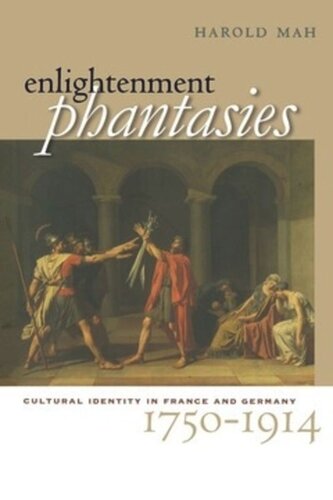

Most ebook files are in PDF format, so you can easily read them using various software such as Foxit Reader or directly on the Google Chrome browser.
Some ebook files are released by publishers in other formats such as .awz, .mobi, .epub, .fb2, etc. You may need to install specific software to read these formats on mobile/PC, such as Calibre.
Please read the tutorial at this link: https://ebookbell.com/faq
We offer FREE conversion to the popular formats you request; however, this may take some time. Therefore, right after payment, please email us, and we will try to provide the service as quickly as possible.
For some exceptional file formats or broken links (if any), please refrain from opening any disputes. Instead, email us first, and we will try to assist within a maximum of 6 hours.
EbookBell Team

4.3
8 reviewsFor centuries the histories of France and Germany have been linked in ways productive and destructive, and each nation's sense of itself has often been shaped by admiration of or hostility toward the other. Harold Mah explores the interweaving paths of German and French cultural identity that emerged in the Enlightenment and continued through the nineteenth century and into the twentieth.Mah argues that the efforts of German and French intellectuals and artists to formulate stable cultural identities constantly collapsed in the face of other powerful images and the rush of history. In Mah's view, these shifting conceptions of cultural identity are problematic phantasies, internally unstable and prone to falling apart under the pressure of events, only to be replaced by new, equally problematic constructions. Mah offers fresh analyses of a wide range of iconic texts and artworks, including those of Jacques-Louis David, de Staël, Diderot, and Rousseau in France and Goethe, Hegel, Herder, Mann, Marx, and Nietzsche in Germany.Mah's book examines how attempts to define cultural identities were caught up in issues of language, gender, classical revival, politics, and modernity. Enlightenment Phantasies presents the shaping of cultural identity in narratives accessible not only to specialists but also to students and all readers concerned with the history of Western culture.